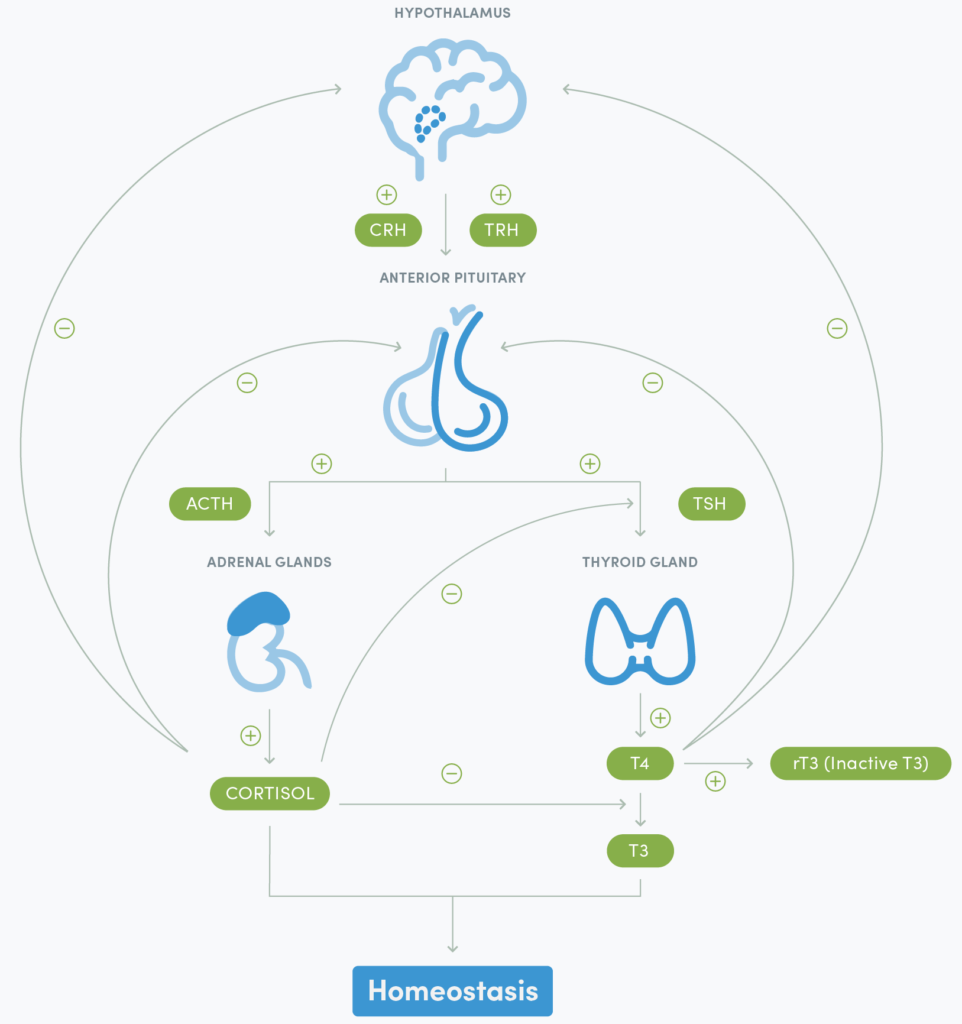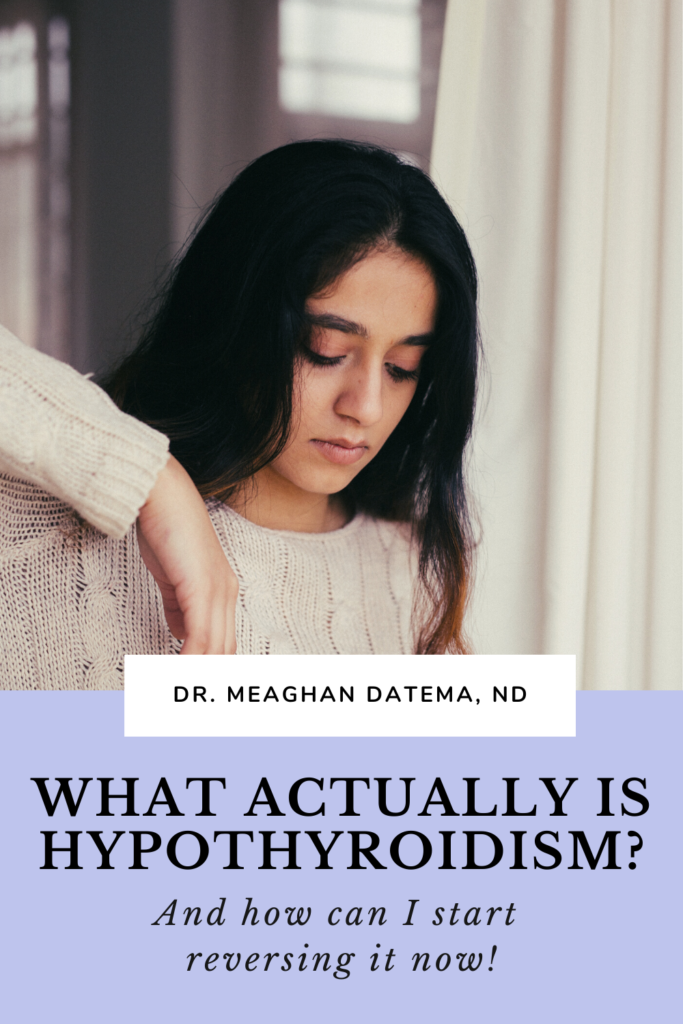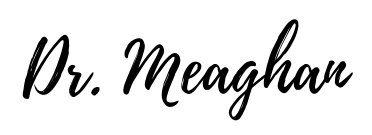Have you ever just felt “off”? Not like yourself? Now have you told your doctor this? Have they checked your thyroid and said it is “fine”? Have they just told you that your symptoms are just a normal part of ageing?
You are not alone. Many of the common health complaints I see in my office can be directly traced back to one little hormone-producing gland. Your thyroid. This gland is responsible for so many functions in your body. There is more than one blood test that needs to be done in order to truly assess if it is functioning optimally.

Your metabolism depends on the optimal function of your thyroid gland.
The Thyroid Gland
Your thyroid is a butterfly-shaped, hormone-producing organ that is located in your neck on top of your windpipe. Attached to the thyroid are 4 little parathyroid glands. These shouldn’t be confused with the thyroid because they do dramatically different things. The thyroid makes thyroid hormone from tyrosine (an amino acid) and iodine. You can think of the thyroid hormone as your metabolism hormone. The parathyroid gland produces the parathyroid hormone which controls the levels of calcium and phosphate in your blood and in your bones.
The Thyroid Hormones
The thyroid gland produces three hormones: thyroxine (T4), Triiodothyronine (T3), and Calcitonin.
- Thyroxine (T4): primary thyroid hormone that is released by the thyroid, however, it is not the active form. It needs to convert it to T3. The short form T4 represents the 4 iodine molecules that are included in this hormone.
- Triiodothyronine (T3): an active form of the thyroid hormone. It is released in small amounts from the thyroid, it is primarily activated in the bloodstream from T4.
- Calcitonin: bone density hormone that works with the parathyroid hormone to maintain strong bones and to regulate calcium levels in the blood. More on this another time
Your thyroid hormones drive your metabolic rate, aka your energy production and storage rate. Your thyroid hormones dictate whether or not you will use carbohydrates, fats, or proteins for energy. The thyroid hormones are also responsible for how you respond to your other hormones including adrenaline, estrogen, progesterone, testosterone, and cortisol. This hormone also influences your heart rate, breathing rate, and brain function and development
The Hypothalamus-Pituitary-Thyroid-Adrenal Axis
Your thyroid health doesn’t actually start in the thyroid, it starts in the brain. Your hypothalamus, the master control centre in your brain, is always sensing and reading want is going on in your body. This gland stimulates the release of the majority of your hormones. If the hypothalamus senses that your thyroid hormones have dropped it will send TRH (Thyrotropin-releasing hormone) to the anterior pituitary gland. Basically it is calling the anterior pituitary gland and telling it to start signalling the body to do its job.
If your hypothalamus is the master control centre in your brain, the anterior pituitary is the relay station. It receives messages from the body and the hypothalamus and it will shut down or turn up various signals that go out to the body. One of the signals that it sends is in the form of TSH (Thyroid-stimulating hormone). When the hypothalamus says, “Hey, there is not enough thyroid hormone in the body, let’s increase production” the anterior pituitary sends out TSH to signal the thyroid.
TSH attaches to the thyroid which enables the thyroid gland to increase the production of T4 (and T3). T4 enters the bloodstream as is converted to T3 by the liver, heart, muscles, and the gut. T3 then spreads throughout the bloodstream, entering cells, controlling energy production and other hormones. Both T4 and T3 go back to the hypothalamus and tell it to slow down this whole process, thus preventing hyperthyroidism.

Complicated right? But wait, there is one more player. Reverse T3 (RT3).
Reverse T3 is an alternate form of T3 that is produced in the increased presence of cortisol. This is another inactive form of the thyroid hormone, but the trick is that it shuts down thyroid production. Chronic stress can put your body into a hypothyroid like state which is why you need to test the whole thyroid.
What does hypothyroidism look like?
Fatigue
Cold intolerance
Joint or muscle pain or weakness
Constipation
Low mood
Brain fog
Dry skin
Hair thinning/hair loss
Period changes
Memory impairment
Weight gain
Lab tests that need to be run
After I take a case and I see several of the above symptoms, I am ALWAYS recommending blood work. Most people say that they have had their thyroid tested by their family doctor and it was fine even though they don’t feel right. What that means is that your TSH was in the “normal” range. Typically that is all that is tested by your medical doctor. In order to gain a complete understanding of the thyroid, theses are the tests that I am running.
Thyroid stimulating hormone
Free Thyroxine (Free T4)
Free Triiodothyronine (Free T3)
Reverse T3 (RT3)
Thyroid antibodies (Anti-thyroglobulin and Anti-thyroid peroxidase)
Running a complete thyroid laboratory assessment is important because you need to see how all the pieces of the HPTA are functioning. If one is off that could lead to a hypothyroid-like state that would usually appear “normal” on standard blood work.
3 steps to start healing your thyroid
If you have hypothyroidism you may need medication help to bring your thyroid back on track. Regardless of whether you need medication or not there are several aspects of health that need to be addressed so that your thyroid can function optimally.
Step 1: Address the Gut
I talk about the gut and the integrity of it’s lining with almost every single person that I see. That is because the gut is the foundation for the rest of your health. If you are unable to digest and absorb your food properly you will not be able to make your thyroid hormones. If your just bacteria is not properly balanced, your digestion shifts as well as your immune system (the majority of your immune system lives in your gut). If your immune system is not functioning properly it can trigger something called Hashimoto’s thyroiditis, an auto-immune form of hypothyroidism where your immune system is attacking your thyroid gland. It is also super important to explore possible food sensitivities and other causes of increased intestinal permeability (aka leaky gut).

Step 2: Stress Management
Remember in the presence of cortisol your body actually converts T4 to Reverse T3 instead of T3 (the active form). In order to prevent this from occurring you need to reduce the amount of cortisol in your body, not eliminate it because we need cortisol to function, but reduce to a balanced level. There are so many different ways to manage stress and reduce cortisol levels, the most important one is the one that works for you and fits into your lifestyle
Step 3: Establish optimal vitamin and mineral status
Your thyroid needs Zinc, Selenium, Vitamin D, Iodine, B vitamins, and protein are all needed to make thyroid hormone and to use it properly. Always ask your healthcare provider before adding any of these supplements into your diet to make sure that they are right for you.
Your thyroid is an integral part of your health that needs to be functioning optimally for you to be at your best. If you are feeling sluggish, run down, tired, cold, and your hair is falling out it is time to run some blood work to check on your thyroid. If you have hypothyroidism the first three steps to reversing it are optimizing gut health, reducing stress, and managing vitamin or mineral deficiencies.
To start healing your thyroid naturally, book an appointment with me using the button below.
Yours in health,

